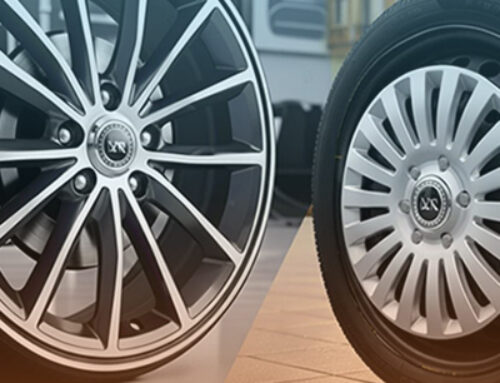Autonomous Cars: The future is here.
Here we start
Autonomous cars are vehicles equipped with technologies that allow them to navigate without a human driver’s intervention. These cars can identify obstacles on the road, process traffic signs, and recognize pedestrians or other vehicles to avoid accidents. In this blog post, we will discuss autonomous cars’ benefits and how they work.

What are Autonomous Cars?
Autonomous cars are vehicles that use a combination of sensors, cameras, and advanced algorithms to drive themselves without human intervention. The SAE J3016 standard defines six levels of autonomy, ranging from Level 0 or unassisted to Level 5 or full autonomy. In Level 5 vehicles, the presence of a human driver is not required.
Levels of Autonomy
- Level 0 or unassisted: No automation, and the human driver has complete control of the vehicle.
- Level 1 or assisted driving: Some driver assistance systems are present, such as automatic braking or lane departure warning.
- Level 2 or partial autonomy: The vehicle can control its speed and direction, but the human driver is still responsible for monitoring the environment and taking over if necessary.
- Level 3 or conditional autonomy: The vehicle can handle most driving tasks, but the human driver must intervene if the car encounters a problem.
- Level 4 or high autonomy: The car can operate without a human driver in most conditions, but it may still require human intervention in certain situations.
- Level 5 or full autonomy: The car can operate without a human driver in any condition.
How do Autonomous Cars Work?
Autonomous cars use a combination of sensors, cameras, and software to navigate the environment. These sensors and camerascreate a 3D map of the surrounding area and detect obstacles such as pedestrians, other vehicles, and road signs. The software then uses this data to determine the optimal route and control the vehicle’s speed and direction.
Benefits of Autonomous Cars
- Reduction of accidents: Autonomous cars can detect and respond to potential hazards faster than human drivers, reducing the risk of accidents.
- Greater comfort and mobility for everyone: Autonomous cars can provide transportation for people who are unable to drive, such as the elderly or disabled.
- Streamlining of roads: Autonomous cars can communicate with each other, reducing traffic congestion and improving the flow of traffic.
- Care for the environment: Most autonomous cars are zero-emission vehicles, reducing air pollution and greenhouse gas emissions.
Disadvantages of Autonomous Cars
- Limited or no human intervention in case of problems: If an autonomous car encounters a problem, the human driver may not be able to intervene quickly enough to prevent an accident.
- Unaffordable price: Autonomous cars are currently expensive, making them inaccessible to most people.
Why Choose Wheels Doctor?
At Wheels Doctor, we understand the importance of keeping your vehicle in top condition, especially if it’s an autonomous car. We offer a wide range of services to keep your car running smoothly, including wheel repair, rim straightening, and refinishing. Our team of experts has years of experience working with all types of vehicles, including autonomous cars, and we use the latest technology and equipment to provide the best service possible.
Our team will be more than happy to help you!
📍 Visit Us: 16800 SW 96 Ct, Miami, FL 33157
📞 Call Us: (305) 490-2028 | (305) 964-7909.
📧 Email: info@wheelsdoctor.com
Frequently Asked Questions (FAQ)
✅ Are autonomous cars legal in the United States?
➡️ Yes, autonomous cars are legal in several U.S. states, although regulations vary by state and often require safety drivers or special permits.
✅ How safe are autonomous cars compared to human drivers?
➡️ Autonomous cars are designed to reduce human error, which is a leading cause of accidents. However, safety still depends on technology reliability and road conditions.
✅ Do autonomous cars work in bad weather?
➡️ Autonomous systems can struggle in heavy rain, fog, or snow, as sensors and cameras may have limited visibility.
✅ Can autonomous cars completely replace human drivers?
➡️ Not yet. Fully autonomous Level 5 vehicles are still under development and not widely available for everyday use.
✅ Are autonomous cars electric?
➡️ Many autonomous cars are electric, but autonomy and electric powertrains are separate technologies and do not always go together.
✅ How much do autonomous cars cost?
➡️ Autonomous vehicles are currently more expensive than traditional cars due to advanced sensors, software, and development costs.








